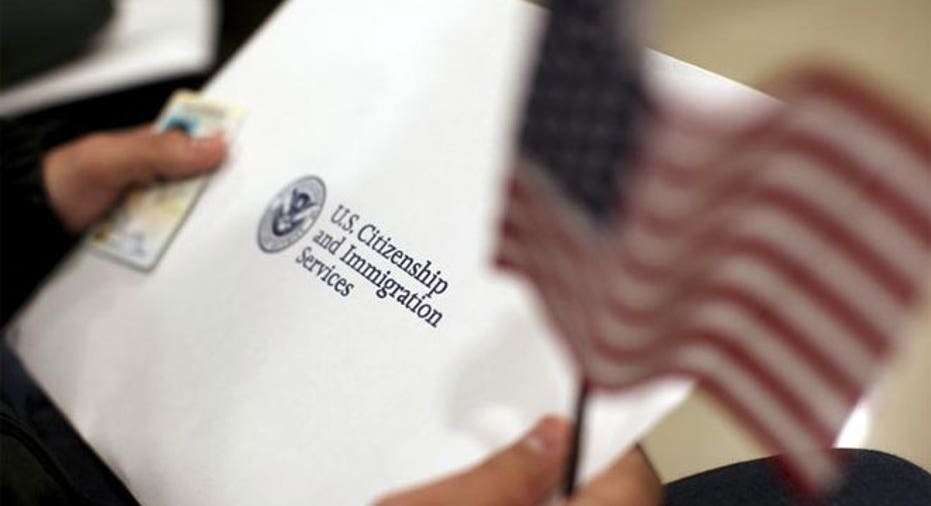Undocumented Immigrants Given Roles at Democratic Convention

The Democratic Party has selected a handful of undocumented immigrants for official roles at next week's Democratic National Convention, in a bid to highlight the gaping policy divide on immigration between White House hopeful Hillary Clinton and Republican rival Donald Trump.
Clinton is hoping to drive Latino voters to the polls on Nov. 8 to shore up her chances against Trump, who has campaigned on a promise to crack down on illegal immigration by building a wall along the Mexican border and deporting millions of undocumented foreigners if elected.
"Our nation is a nation of immigrants that believes in being inclusive, and that’s exactly what we will continue to work toward," said Leah Daughtry, the chief executive officer of the committee organizing the July 25-28 convention in Philadelphia.
"The voices of our nation’s brave undocumented youth will be heard loud and clear,” Daughtry added.
The picks include two members of the convention credentials and platform committees, as well as several speakers. The positions are unpaid, officials said.
Trump's campaign, which has argued that unchecked immigration hurts American workers and undermines national security, criticized the move.
"Apparently speaking at Hillary Clinton’s convention is just one more job Hillary Clinton thinks Americans won't do," a Trump campaign aide said in an emailed statement. "She should have instead invited unemployed Americans, or victims of crime, or law enforcement."
The selections are legal because of a "deferred action program" adopted by President Barack Obama’s administration, which postpones deportations and provides work authorization for some immigrants brought to the United States as children. The Supreme Court blocked efforts to expand those protections last month.
The nominations mark the first time a major U.S. political party’s convention has featured so many undocumented workers among its ranks. While there was an undocumented speaker at the 2012 Democratic convention, the party has not previously tracked the immigration status of its committee members.
"It changes the whole conversation when you have someone directly affected at the table," said Cesar Vargas, a Mexican immigrant chosen for the party's policy platform committee.
Hareth Andrade, 23, an undocumented immigrant from Bolivia who was approved under a deferred action program, was picked for the credentials committee. The convention will also feature at least two undocumented immigrant speakers, Astrid Silva and Francisca Ortiz.
Clinton already has overwhelming support from minorities. Some 70 percent back her, compared with 9 percent for Trump, according to recent Reuters/Ipsos polling, suggesting that she could have a strong chance in states like Florida, Nevada and Colorado that swing between voting Democratic and Republican in presidential elections.
However, voter turnout among Latinos has traditionally been low, hitting only about 40 percent in 2012, meaning her challenge is to get more of them to cast ballots this year.
Luis Fraga, co-director of the Institute for Latino Studies at the University of Notre Dame, said showing a commitment to progressive reform of U.S. immigration policy could help Clinton do that.
He called immigration a gateway issue for minority voters that can help engage them. That’s especially so because even Latinos born in the United States are often not far removed from family members who are immigrants themselves.
"Although it’s not their individual experience, it is their family’s experience," Fraga said.
(Editing by Richard Valdmanis and Jonathan Oatis)



















